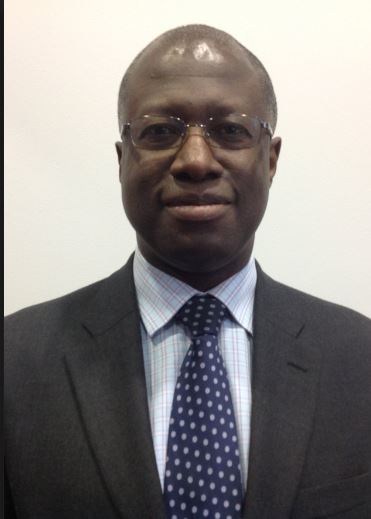60 seconds with Professor Francis Chinegwundoh MBE

My education and career path began in Swinging London in the 1960s….
I grew up in South London and was a child of the swinging 60s. I did well in my education and my first big step was getting into grammar school. Once I was in grammar school, I achieved good enough A Levels to apply to medical school.
I applied to St Thomas’, Charing Cross and St George’s. I was accepted at St George’s and was one of two black men in my year. Some years later, there was a scandal which revealed that during the application process at St George’s, there was an automated system in place which discriminated against you if you were black or female and they were forced to make offers to people they had unfairly excluded. This was surprising as St George’s was actually one of the best medical schools, in terms of the diversity of its students.
Once I’d done the equivalent of foundation year one, I applied to be a registrar in the A&E at St George’s. I wasn’t accepted and I couldn’t see a reason why that should be the case.
I told the recruiting professor that I was surprised not to be offered a job at my own medical school, when colleagues who not done any better than me had been. He assured me that next time round I would have more luck so I went to teach anatomy for six months before applying again.
This time I was successful. Even though I was upset not to have been accepted in hindsight that time teaching anatomy was good for me as it put me in good stead for my surgical exams later on.
I was advised to change my name….
As a medical student on a GP placement in the early 1980s, a very pleasant GP advised me that I should change my name to a more English sounding one. Even though I took this to be well meaning advice, I decided not to take it. My theory was that if the Austrian actor Arnold Schwarnegger didn’t need to change his name, in fact he couldn’t speak English, and yet had managed to break Hollywood then as someone who was born in London I should be able to get to where I wanted to be without doing so too.
My path to surgery….
When I was applying for surgical rotation, I realised that being black and having a long name put me at a disadvantage so I decided I needed the best references I could get.
I applied to work for a surgeon at St George’s who was very good but had a reputation for treating juniors badly. Once I applied for his job, I went to see him face to face so he could see my perfect language skills, good background and our commonality of living and working in London. I was given the job.
We actually got on very well and he was a good teacher. I still use some of what he taught me today. I wasn’t scared of him and I could see that when people where scared of him it made him worse. In fact, even though I had brown eyes everyone regarded me as his blue eyed boy! With his support and a good reference, I got into Great Ormond Street and then onto the surgical rotation.
The proudest moment of my career was passing the first part of the Royal College of Surgeons fellowship exams. Only 10 per cent pass first time. Once I’d passed the second part I became ‘Mr’ rather than ‘Dr’ and was a surgical registrar.
My work with black men and prostate cancer…
I became a consultant in 1996 and it was then that I began to notice a lot of black men were being diagnosed with prostate cancer. There were no statistics on ethnicity and outpatients so I managed to get a list of all the diagnosis of prostate cancer and from this I was able to ascertain that the risk of prostate cancer in black men was two to three fold.
From these findings I was able to collaborate with various colleagues who had the same interest and get funding to carry out further research to confirm the risks and why this was; we worked in Nigeria, Ghana, Senegal and the Caribbean to prove that men who come from West Africa are genetically predisposed to developing prostate cancer.
The people who’ve helped me…
I’ve not formally had a mentor or coach but people from the community have always encouraged me. My parents have also been a constant support to me.
My advice to any BME staff reading this interview…
If you are a black person in your organisation, be a beacon not a token
Why I think it’s important for Barts Health to celebrate Black History Month…
It shows that we care and sends an important message to our BME staff that their contribution is valued and respected. It’s important to get across the message that the Trust is trying to make progress with our BME staff.
